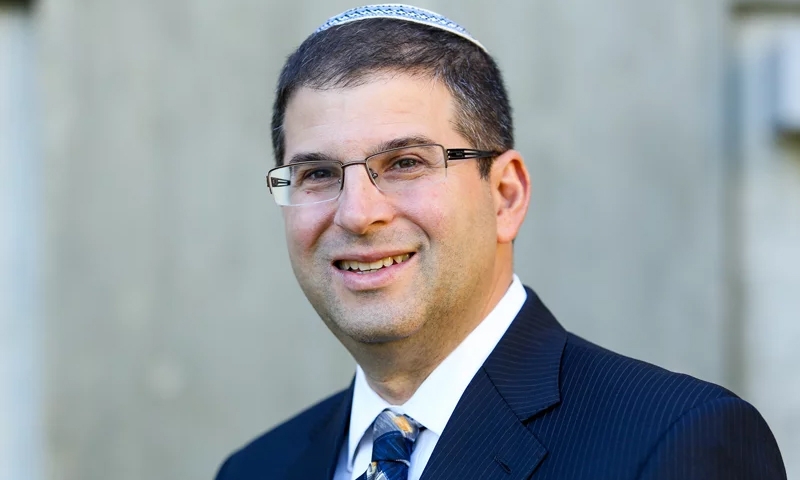Fighting for Judaism in the Jewish State
I am an Orthodox rabbi dedicating my life to breaking the ultra-Orthodox monopoly over Jewish life in Israel.
I have not been detained by the Israeli police on my way to morning prayers, but I am preparing for that eventuality. That’s the new reality of life in the Jewish state for those of us who publicly oppose Jewish fundamentalism.
Just ask my colleague Rabbi Dov Hayoun.
On July 20, Rabbi Hayoun, a prominent Conservative rabbi, was awakened at 5:30 a.m. by the police at his home in Haifa and taken to a station for questioning. What was his alleged crime? Performing a Jewish wedding in the Jewish state.
In Israel, the ultra-Orthodox chief rabbinate is legally responsible for sanctioning all Jewish weddings and divorces. But Rabbi Hayoun, like hundreds of other rabbis, isn’t recognized by the rabbinate. And so he performs weddings without its blessing.
Technically, this makes him a criminal. Under Section 7 of Israel’s Marriage and Divorce Ordinance, any marriage or divorce that isn’t registered with the rabbinate is illegal. The potential punishment: two years in prison.
What would Israel’s founders make of this situation? What about our Jewish ancestors?
More than 3,000 years ago, Judaism introduced a radical idea into the world: Human beings are all created in the image of God. Unlike other ancient near-Eastern creation narratives, which speak of man as being created out of battles between the gods, the Torah insists that human beings were created out of a divine decision to bring goodness to the world. When God chooses to make a nation of Abraham, God says, “I know that he will command his children to seek justice and righteousness.”
With the founding of the state of Israel in 1948, David Ben-Gurion and others transformed that biblical vision into modern reality. Israel’s Declaration of Independence states that the state “will be based on freedom, justice and peace as envisaged by the prophets of Israel; it will ensure complete equality of social and political rights to all its inhabitants irrespective of religion, race or sex.”
It is a stirring vision worthy of our people’s storied and painful history. But Israel still has a long way to go to realize the vision of the prophets of Israel — or to address the needs of the world’s 14 million Jews.
Recent legislation has reinforced the notion that today’s Israel is succumbing to myopic extremism. The recently passed nation-state law has drawn the justifiable ire of many of Israel’s non-Jewish law-abiding citizens, who say it makes them feel second class. A new law does not allow gay couples to have a child using a surrogate in Israel. And a proposed conversion law would give the chief rabbis unprecedented power over who can join the Jewish people.
These are just the latest moves by extremist elements in the government to make life in the Jewish state less welcoming for anyone who doesn’t identify with ultra-Orthodox Judaism.
Thanks to the rabbinate’s stranglehold on marriage, approximately one out of every eight Jewish Israeli couples each year choose to marry outside of Israel. (Cyprus is the typical destination of choice.) Tens of thousands more have foregone marriage altogether.
More than 425,000 immigrants to Israel — primarily from the former Soviet Union, where Judaism was outlawed for decades — are listed in the population registry as “no religion” because no one is willing to help them clarify their Jewish status. The rabbinate won’t perform weddings for
them.
I know many of these disaffected Jewish Israelis personally. For more than a decade, I have been fighting to break the ultra-Orthodox monopoly over Jewish life in Israel. Through the organization I run, I help more than 5,000 families each year navigate state-administered matters of Jewish life, like marriage and conversion. I have the dubious distinction of being an Orthodox rabbi who has sued the chief rabbinate in Israel’s Supreme Court — six times.
At present, I am representing 27 people whose Jewishness has been revoked by the government. In each case, families that were in Israel for more than two decades (and who had actually been married through the rabbinate) were summoned to “unJew” themselves because a new immigrant relative of theirs was unable to present to the rabbinate adequate certification of Jewishness, which created a domino effect. Unbelievably, Israel’s two chief rabbis both wrote approbation letters in the last year for a book that supports DNA testing to prove Jewishness. This is the kind of creeping fundamentalism I’m trying to stop.
Many people are critical of my work. In some parts of the Orthodox Jewish community, I am accused of “going too far,” of undermining the Halakhah (traditional Jewish legal corpus) that stands at the cornerstone of my faith. In other circles, I am accused of being “too hard on Israel,” of airing the dirty laundry of a “young state that has done so much for the Jewish people”.
Rabbi Seth Farber is the founder of ITIM, an advocacy organization
Related Posts

